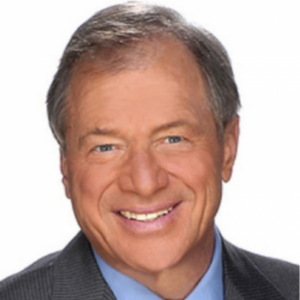On September 11th, 2001, I was vacationing at my sister’s place on Long Island about 110 miles from New York City. Just as I was getting ready to play golf with my brother-in-law, my sister came rushing into the kitchen and told us, “A plane has crashed into the World Trade Center, the building is on fire.”
Five minutes later my beeper went off. It was my station manager in Los Angeles, Paula Madison, telling me to get into Manhattan and report to the WNBC-TV newsroom at 30 Rock in midtown Manhattan.
Took off immediately. Gail and I jumped into her car. She was driving. As soon as we got on the Long Island Expressway, the radio news told us that traffic was backed up for thirty miles. Public transportation all over the area had been shut down. Thousands of people were driving into the city to pick up stranded relatives who worked in Manhattan.
Driving into the city we had a full frontal look at the skyline of Manhattan and the fire that was burning out of control at the World Trade Center. Near the top of the 110-story skyscraper, there was a large burning hole in the building where the plane had smashed into it. It looked like the structure had been partially decapitated. A sweeping horizontal cloud of smoke from the fire was being blown by the wind across the skyline of Manhattan. What a sight it was.
Police were not allowing anyone into Manhattan. Journalists were told to wait at Shea Stadium’s parking lot until a bus could take them into the city. I didn’t want to wait, the station kept calling. “Where are you? When will you be ready?”
So Gail and I drove to the 59th Street bridge, which connects Queens to Manhattan. This was the final link into the city and it was guarded by a woman whose uniform indicated that she was a parking meter attendant. I showed her my press credential and she let us through.
Once we got onto the bridge, another unforgettable sight. Thousands of men and women, many of them of them dressed in business attire, were walking out of Manhattan. Since all busses, subways and commuter trains were shut down, the people who worked in the city were getting out of town the only way they could, by walking over the bridge. For a minute, the rushing crowd made me think of what it must have been like in 1940 when the invading German army entered Paris and thousands of Parisians simply walked out of the city to get away from the threat.
Once I reached NBC, they gave me technical support and I spent about 20 hours reporting from Manhattan to my station in Los Angeles. One of my colleagues in Los Angeles, an immigrant from China, told me weeks later that he cried when he saw me report on the day of the attack that New York City has been brought to its knees. I couldn’t believe it myself. I’ve always thought of my hometown, New York City, as indestructible. I ended up spending several weeks in New York doing follow up stories for Channel 4 News in both New York and Los Angeles.
The hardest part of that assignment was meeting relatives of people who died at the World Trade Center. As we visited hospitals around the city, family members of the nearly 3,000 people who died in the attack would show us photos of their loved ones and ask, “Have you seen this person at any of the other hospitals?” It was painful to say, “No, we haven’t seen that person.”
One of my follow-up assignments involved the funeral of a firefighter who died in the attack. It was an Italian neighborhood in the Bronx, the widow was a dark-haired woman dressed in black with two children at her side. They sobbed throughout the service. Her husband had been killed trying to save others at the World Trade Center.
After the service, my cameraman and I stopped for lunch at a nearby Italian deli on a busy street. A man who had been at the funeral saw our camera and came up to us in a fury. He pointed to a falafel store across the street and said, “You see that place over there? When those planes smashed into the building, the people who work in that store were cheering and clapping in front of it.” He turned to us with a face full of anger and said, “We’re going to pay those people a visit.”
We went back to the station and put the funeral story on the air. I never went back to see if they paid those people a visit.
Perhaps I should have.

